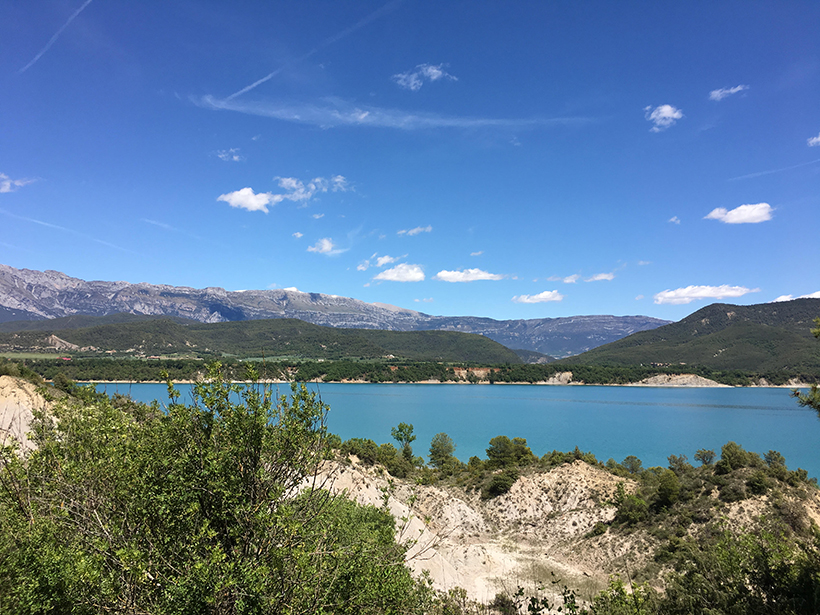Past Global Changes (PAGES), a core project of Future Earth, aims to improve past climate and environment reconstructions to better recognize their natural variability and, ultimately, inform strategies for sustainability. Paleoscientists who make up the PAGES community reconstruct components of the Earth system from a variety of natural and historical archives, and they integrate these data with models to better understand Earth’s biosphere, cryosphere, atmosphere, and lithosphere.
Discussions highlighted the need for closer collaboration between proxy scientists and modelers.
The 3rd PAGES Young Scientists Meeting (YSM) brought together 80 early-career researchers (chosen from over 200 applicants) from 23 countries in the small, restored ecovillage of Morillo de Tou in the Spanish Pyrenees. Twenty talks and 61 posters were presented in topical sessions that included abrupt change and threshold responses, biosphere and ecosystem dynamics, climate system dynamics, human-climate-ecosystem interactions, modeling, and new technical and methodological developments in paleoscience. Presentation and poster topics are posted here.
The scientific program also included keynote talks and three workshops on funding, communicating science, and data sharing. After the workshops, breakout groups discussed the increasing importance and challenges of better communication skills, funding opportunities, future career paths, and priorities for paleoscience in the coming decade. These discussions highlighted the need for closer collaboration between proxy scientists and modelers to strengthen the integration between the two data sets, including the development of new approaches for data assimilation and proxy system models.
An early-career researchers group would act as a platform for science outreach and education to broader, nonscientific audiences.
Participants discussed the possibility of establishing a PAGES early-career researchers group to promote young scientists’ participation in the paleoclimate community and offer interdisciplinary networking opportunities. Delegates were encouraged to present thematic ideas for the new group, and they agreed that effective communication is essential to convey the importance and relevance of paleoresearch. Accordingly, participants suggested this group would act as a platform for science outreach and education to broader, nonscientific audiences, particularly policy makers, local communities, and elementary schools.
YSM participants were warmly welcomed by the local community, which has experienced profound effects related to climate change, intensive water management, and land use changes over the past century. The attention to climate change in this region was evident from the enthusiastic media coverage, which gave several participants unplanned opportunities to test their communication skills for an Aragon TV documentary on global climate change (42-minute video, in Spanish).
The local community entertained YSM participants with an evening of stargazing with members of the Huesca astronomical society and traditional dancing with a live band from the Aragon region.
Not only did the YSM facilitate the integration of the proxy and modeling research communities and provide a platform for interdisciplinary networking; it also helped participants to have the confidence to interact with well-established scientists at the PAGES’ 5th Open Science Meeting (OSM) in Zaragoza (attended by 900 people), which immediately followed the YSM.
The momentum from both the YSM and OSM has already led to the development of an informal online group. The group’s purpose is to strengthen connections and develop future research collaboration opportunities among early-career researchers.
—Vachel Carter (email: [email protected]), Charles University, Prague, Czech Republic; Liv Heinecke, Alfred Wegener Institute, Helmholtz Centre for Polar and Marine Research, Potsdam, Germany; and S. Yoshi Maezumi, University of Exeter, U.K.
Citation:
Carter, V.,Heinecke, L., and Maezumi, S. Y. (2017), Early-career scientists discuss paleoscience, future challenges, Eos, 98, https://doi.org/10.1029/2017EO084127. Published on 09 October 2017.
Text © 2017. The authors. CC BY 3.0
Except where otherwise noted, images are subject to copyright. Any reuse without express permission from the copyright owner is prohibited.

